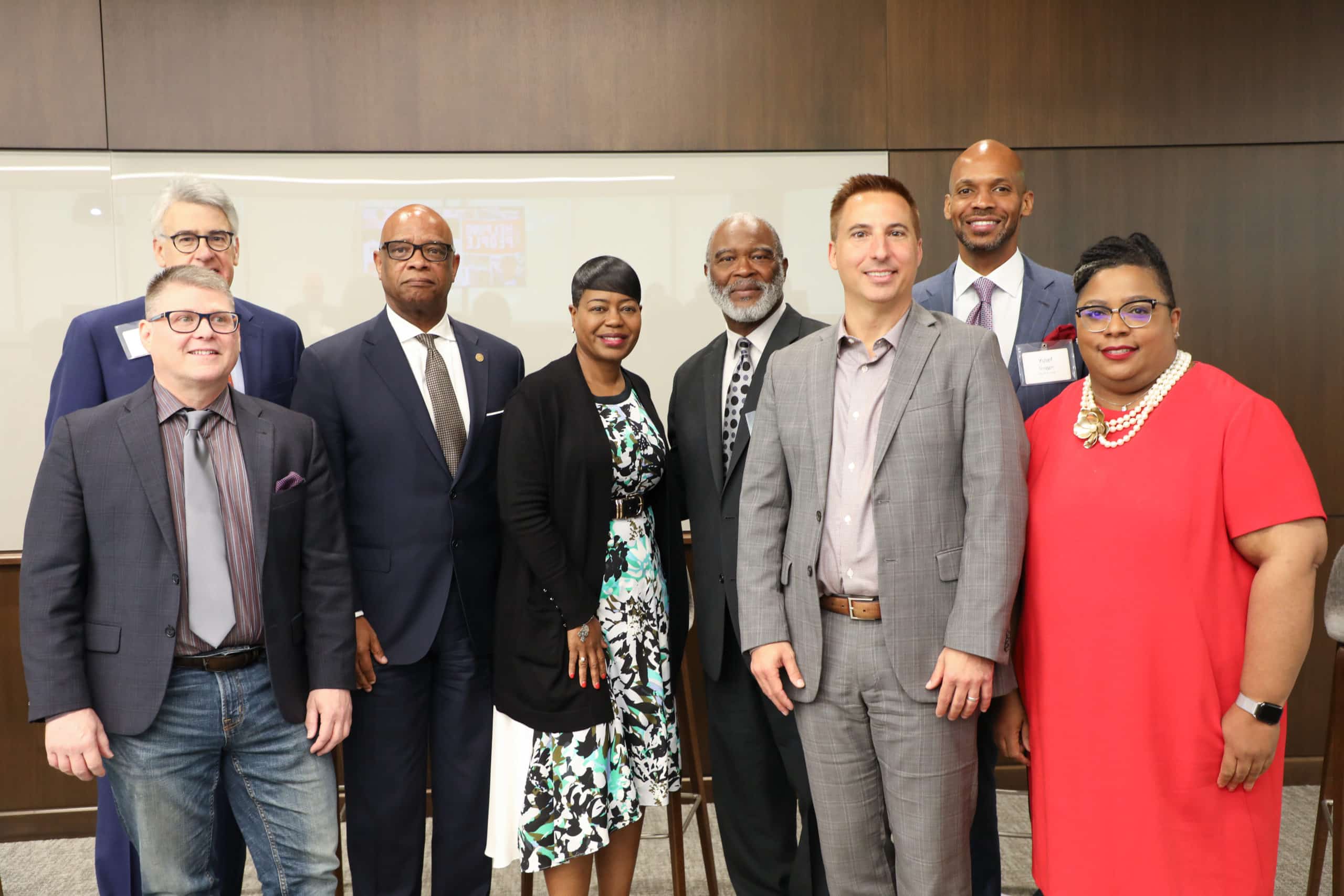In late June, United Way brought the community together through a hosted panel discussion on ways to address important issues throughout the St. Louis region.
This discussion focused on the need for our region to work together collaboratively to effectively drive impact and change in how our neighbors receive help and access resources to put them on a path to success.
A group of professional experts gathered at Centene University to discuss issues in behavioral health, workforce development, and housing and basic needs.
Behavioral health disparities
Panel moderator Rich McClure began the conversation with the challenges and opportunities around behavioral healthcare that have emerged during the pandemic and what agencies, institutions and the community should lean into that will help address disparities and lack of access to behavioral health services.
Serena Muhammad, deputy director of the St. Louis Mental Health Board, said healthcare institutions need to be more accommodable to those who have been consistently excluded from proper healthcare resources.
“We have to really be serious about organizing our system equitably so that everyone has the opportunity to have their needs met,” said Muhammad. “There needs to be extended hours for healthcare services and greater investment in digital infrastructure for telehealth that addresses the digital divide. We have to make necessities available for families with fewer resources.”
Dr. Bart Andrews, chief clinical officer for the Behavioral Health Response, believes accessibility to proper care is one of the key factors in behavioral healthcare disparities. He said more diversity with healthcare providers and more healthcare facilities within underserved communities will help to address this issue.
“If we’re going to fix things, we have to put services in the community where the people who need the services are, “ said Andrews. “The service providers need to look like the community because when people walk in to get help, they want to be treated with dignity and respect, and like they belong where they’re at.”
Watch the full discussion with Serena Muhammad and Dr. Bart Andrews:
Cultivating workforce development
Financial stability is essential to quality of life and one of the key ways to achieve this is through gainful employment. Workforce development helps people get access to proper job training, identify career goals, and works to eliminate barriers that could stop them from reaching their potential.
Workforce development and job training initiatives also help to end the cycle of poverty that many communities and families in our region face today. Jason Hall, CEO of Greater St. Louis Inc., said one of the biggest obstacles facing people who are seeking employment is a lack of reliable transportation.
“If you don’t have access to safe, affordable, and equitable transportation systems, its going to be pretty hard to get a job,” said Hall. “There’s a saying that, ‘A rising tide lifts all boats,’ but that’s presuming that you have a boat in the first place. Our safety network and the work we’re doing to bring social services to lower the barriers to jobs are building those boats as we raise the tide.”
Howard Hayes, director of human services for St. Louis County, believes educational leadership is important in workforce development because it gives youth the opportunity to develop new skills that can translate into innovative careers that will benefit our region and beyond.
“We need to look at teaching as not only being a calling, but a profession, a profession that this region desperately needs to succeed,” Hayes said. “We need to identify the skills that will fill the jobs of the future. What do we need in order to compete, not just around the state and around the country, but to compete around the world?”
Watch the full discussion with Jason Hall and Howard Hayes:
Addressing housing and basic needs
Safe, stable, affordable housing and access to basic needs are essential to moving toward a path to success and can be a component of wealth creation. Studies show that people who are adequately housed earn more over their lifetime, live longer, and their children do better in school.
But low-income communities and communities of color often lack adequate housing which can be a root cause of many other challenges.
Yusef Scoggin, director of human services for St. Louis City, believes we should treat housing disparities in low-income communities the same way we treated the housing crisis that arose during the COVID-19 crisis, putting more emphasis on how to address and solve the problem.
“During the pandemic, the federal government realized that we did not want to go into an economic recession, so that led to the forwarding of federal funds with regards to CARES (Coronavirus Aid, Relief, and Economic Security) dollars and rental assistance, which has allowed us to do some great things,” said Scoggin. “By tracking the data, we learned that we have been able to address the real ills that we knew could have been changed if we were willing to make the investments.”
James Heard, U.S. Department of Housing and Urban Development’s St. Louis field office director, said lack of resources and investment in communities of color is at the heart of the housing disparity issue.
“In some of these communities, there have been 60, 70 or 80 years of disinvestment,” said Heard. “Not just in housing, but also in all of the things around housing such as medical institutions, grocery stores, retail stores, and everything that a viable community needs to sustain itself.”
Watch the full discussion with Yussef Scoggin and James Heard:
Take action now:
- Learn more about how United Way is improving health in the St. Louis community.
- Find out more about our partner agencies that are focused on workforce development.
- Read more about how United Way 2-1-1 is helping people meet their basic needs.
- Share this story with family and friends.
